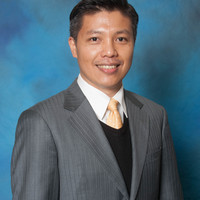
Marie Battiste
Dr. Marie Battiste is a Mi'kmaw educator, a member of the Potlotek First Nations, Nova Scotia, and full professor in the Department of Educational Foundations at the University of Saskatchewan. With graduate degrees from Harvard and Stanford, she is a senior Indigenous scholar in Canada, among the first to have graduated with a doctorate degree, whose work in Indigenous knowledge and decolonizing pedagogies has opened new areas of research and inquiry. She has received four honorary degrees (St. Mary’s, Thompson Rivers, University of Maine at Farmington, University of Ottawa), and is an elected fellow of the Royal Society of Canada, a Canadian organization of over 2000 Canadian scholars, artists, and scientists, peer-elected as the best in their field. She is a recipient of the Distinguished Academic Award from the Canadian Association of University Teachers, a recipient of the distinguished researcher award at the University of Saskatchewan, and an INDSPIRE Award for her contributions in education. She is an international speaker and widely published author, including books Living Treaties: Narrating Mi’kmaw Treaty Relations (CBU Press, 2016); Decolonizing Education: Nourishing the Learning Spirit (Purich Press, 2013), Protecting Indigenous Knowledge and Heritage: A Global Challenge (Purich Press, 2000), co-authored with J. Youngblood Henderson, Reclaiming Indigenous Voice and Vision (UBC Press, 2000) and First Nations Education in Canada: The Circle Unfolds (UBC Press, 1995).
She has written widely in literacy, cognitive imperialism, linguistic and cultural integrity, indigenous knowledge and humanities, and decolonization of Aboriginal education. Her doctoral dissertation completed at Stanford University was entitled An Historical Investigation of the Social and Cultural Consequences of Micmac Literacy (1984).
Phone: 206-966-7576
Address: 28 Campus Drive
University of Saskatchewan
Saskatoon, SK Canada S7N0X1
She has written widely in literacy, cognitive imperialism, linguistic and cultural integrity, indigenous knowledge and humanities, and decolonization of Aboriginal education. Her doctoral dissertation completed at Stanford University was entitled An Historical Investigation of the Social and Cultural Consequences of Micmac Literacy (1984).
Phone: 206-966-7576
Address: 28 Campus Drive
University of Saskatchewan
Saskatoon, SK Canada S7N0X1
less
Related Authors
Noelani Goodyear-Ka'opua
University of Hawaii at Manoa
David Seamon
Kansas State University
Donna Alvermann
The University of Georgia
Dylan AT Miner
Michigan State University
Gabrielle Legault
University of British Columbia
Suzanne Owen
Leeds Trinity University
Robert Schumann
University of Hamburg
Piotr Michalowski
University of Michigan
Ayşe Elitok Kesici
Oakland University
Che-Wei Lee
University of Pittsburgh
InterestsView All (15)









Uploads
Papers by Marie Battiste
Yet, just as these enticing possibilities invite us to expand our research in ways unimagined just a decade ago, a parallel counterbalancing shift towards a ubiquitous neoliberal and accountability-focused culture – both in the academy and in society – imperils these promising developments. As audit culture and governmentality spread, they give rise to a new managerialism set on measuring us against rigid conceptions of research and impact, regardless of how inappropriate, unethical, or deleterious such constricting measures may be to ourselves and our communities. Ultimately, at stake, is the very notion of what can be considered knowledge itself.
The book is the result of the symposium, “Public Engagement and the Politics of Evidence in an Age of Neoliberalism and Audit Culture,” held on July 23–25, 2015, at the University of Regina (http://www.politicsofevidence.ca/). Guiding questions for the symposium interrogated the politics of evidence: What counts as scholarship and why? How do we measure research impact? Impact for whom? Who determines and how do we determine whose evidence and what research is legitimate? What can be done and how do we effect change to university practices? For three intense days in 2015, two hundred concerned and committed scholars—together with a field of internationally renowned presenters from Canada, New Zealand, the United Kingdom, and the United States— responded to a pressing call and convened at the University of Regina (https://www.uregina.ca) to discuss colonialism, neoliberalism, and audit culture in the academy.
The present collection is intended to serve as a tool for new and seasoned scholars alike who are seeking to navigate, critically resist, and collectively reclaim and reimagine the academy. You, the reader, are now an integral part of this gathering and will help shape the future as you engage with these and other texts and groups. The future is on all of us. Time to resist, organize, and act in concert with initiatives, collaborations, affinity groups, and movements within and well-beyond the academy at both local and global levels—it is incumbent on us to expose, provoke, and tear down these systems of illegitimate authority and power.
Even the harshest critics and most prominent scholars cannot easily escape our de-funded, highly individualized, hyper-competitive, and perversely incentivized moment. As Patti Lather in the collection asks: How does all this shape, reinvent, and construct life for faculty when the institutions in which “…we function serve as both harbor and tyrant.”
To help us examine these and other questions, Dissident Knowledge in Higher Education features contributions from the following internationally-renowned scholars: Marie Battiste, Noam Chomsky, Norman Denzin, Michelle Fine, Rosalind Gill, Sandy Grande, Budd Hall, Patti Lather, Zeus Leonardo, Yvonna Lincoln, Peter McLaren, Christopher Meyers, Linda Tuhiwai Smith, Eve Tuck, and Joel Westheimer.
This paper presents first an introduction to the Canadian context of Aboriginal education and postsecondary education outcomes achieved so far, followed by a discussion of various models for Aboriginal education adopted by PSE institutions, along with specific examples of these types of programming. The paper next provides a general discussion of promising practices adopted within these models that have been found to improve academic outcomes for Aboriginal students in Canada, and explores a resulting dilemma. The paper concludes with a review of promising practices, key themes arising in the contemporary context of Aboriginal education, new directions for the postsecondary education of Aboriginal and non-Aboriginal students, and consideration as how these might be replicable to other nations.